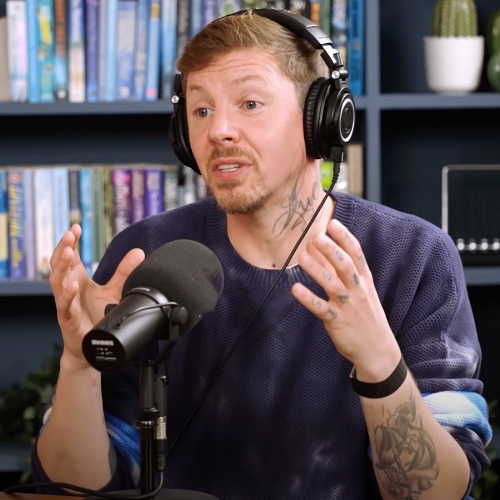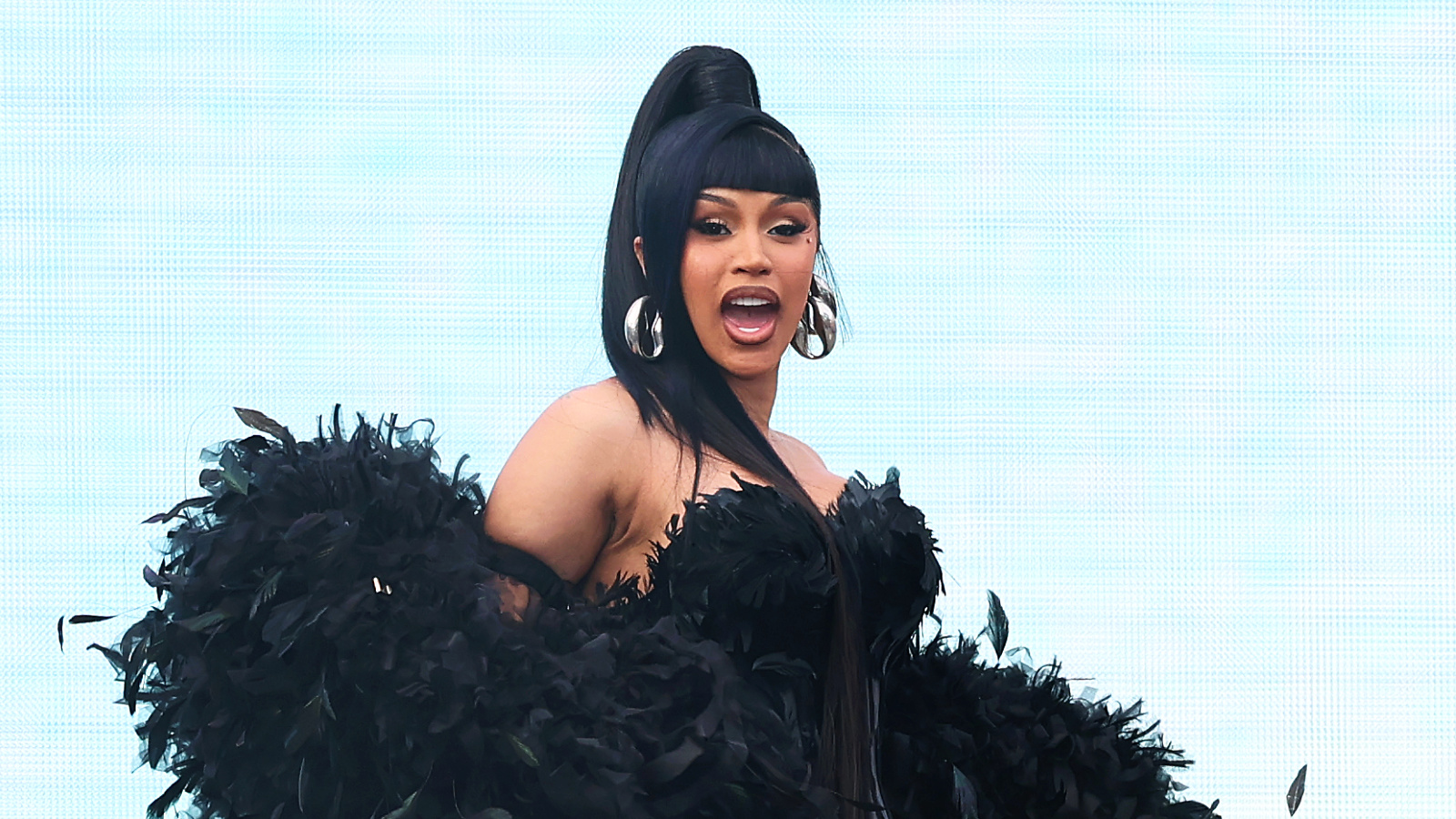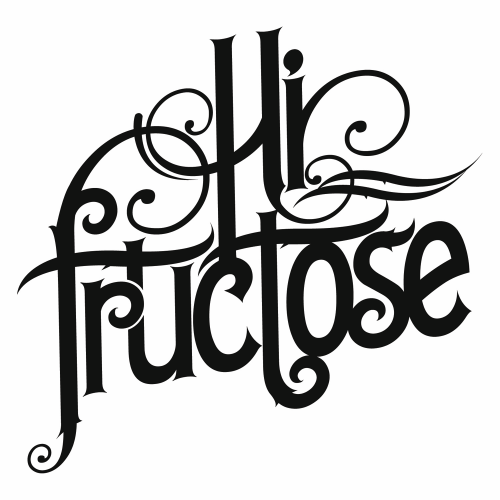ON MILLIE MACKINTOSH RELATIONSHIP:
‘When Millie and I started seeing each other that crazy, that just, I mean, it just things change so significantly, and what people don’t realize is because we were spoken about so often, and I very rarely did this.
But, you know, like comments on news sites. Yeah. It would just be like, Oh, here they are again. But we don’t ask for that. Those pap shots are not set up. They’re invasive. We don’t talk about ourselves anywhere near or our relationship anywhere near what we’re spoken about, you know, however much we’re asked. But this thing has grown into its own thing, and the pressure that came from that this has made it, made it impossible, in hindsight, to have, I guess, like, a really, truly authentic relationship, and also undiagnosed neurodivergence between both of us. We had a conversation about this recently, and it was quite, did you Yeah, and it was quite like, it makes sense, didn’t it?’
The first, second and third page of the Daily Mail the day after we got married was East End drug dealer marries quality street heiress. Which, do you know what there is, I’ve sold weed, and she’s, I mean, it’s, you know, there’s, like, many, many generations, yeah, there’s probably some inheritance somewhere along the way, right?
But, like, I mean, when we met, and this is, I don’t say this as like, in any way to be offensive, like, Millie was working, she was doing Made in Chelsea, but she was working at Space NK, right? So, like it, I was already at a point in my career which, you know, was allowed us to meet, I guess, because, you know, we weren’t in similar worlds. We were very, very separate. And there was something so, like, she’s beautiful man, like she’s, you know, there is something so, and I stand by this, I don’t want to sit here and speak about her at all. There isn’t a bit of, like, there’s no resentment in me. She is gorgeous. We were not good for each other at that time. We were for a point, and then, you know, I think things that we didn’t understand were happening, and it was way more than we could have ever.
If there wasn’t that pressure, we may have never got married, is the truth? It very nearly didn’t happen. I remember having a conversation with my two best mates, Lewis and Phoenix. And you know, am I getting cold feet? What’s going on here? And one of them said, Yes. One of them said, No, I won’t put him in it, because not their responsibility. But I didn’t, you know, I made my own decision. And. I and we made our decision, and we didn’t get married for the wrong reasons. You know, we loved each other.
It was probably an element of trauma bonding. And it takes a lot to get to a place of going, Okay, well, I had a significant part in that 50% at least, because there were two of us in the situation, and it didn’t work out. But hopefully we can both go forward and find, you know, happiness and belonging.
ON RELATIONSHIPS:
There’s a really terrifying book, boys and men, by Richard Reeves, and he talks about, you know, the effect of men becoming less marriageable. You know, men becoming unmarriageable, so therefore women looking at them as just an extra mouth to feed and thinking they can do everything themselves, and the impact that that has on them raising boys and, wow, that’s not villainizing women, by the way. No, it’s just what’s happening, and then men being at much greater risk. This is, I can’t repeat all of this verbatim. I need to go back and read the book another six times. But men being at much greater risk of mortality if they’re not in a relationship. So the women offered most independence by way of success are most likely to marry, which, you know, like, there’s so much fucking division, man, we’re not even, you know, against patriarchy together. It’s just, well, if women are doing better, it must be at the cost of men, you know. I mean, like, let’s, let’s feed that to men. You know, in the same way that people are encouraged to be angry at immigrants because they’re the problem, right? Despite you having much more in common with them than you ever will with your middle or upper class counterparts. They’re the problem. It’s all of this division which is encouraged and relied upon that stops any significant change from ever happening, because there’s no unity between us. How do we ever unify and make substantial change when we’re not all pulling in the same direction?
ON HAVING A SON:
JL – Does having a son makes you want to go and see your Dad?
Yeah, I wanted to go and see my dad. I wanted to, you know, immediately, I’m grieving him. And this is where I talk, you know, I said about rumination, it was also just in, you know, living in the past. If I think about things that happened then, and I feel the feelings that I felt, by way of those things, I’m in the past. Yeah, I’m not present. That’s not fair to my son. But there was a grieving that took place. And this is the thing with grief, it changes shape. It never disappears; I will forever be sad about my dad having passed. And when I got married to Millie, you know, I looked out my dad couldn’t be there. That’s awful. It feels horrendous, you know, and not being able to go to my dad, but also having not had him in a way that gave me an example of what to do when you’re in a situation, you think like, oh my god, we’re walking out the hospital. And the only thing that was required for us to leave the hospital with this life that we’ve got to protect, care for and look after and nurture, is a car seat for the car. Where’s the book? Yeah. But it’s, it’s just, it’s the absence, you know, it was, it was the absence that that that was difficult, that and the absence that had, you know, had taken place while he was alive, in the absence, that it was more permanent in his death, and that he couldn’t be there to help or to aid, and I couldn’t, I couldn’t talk to him and get a response from him. And I would love for him to meet my you know, and he’d be a young grandfather.
JL: ‘What would you ask your Dad if he was here?’
PG: ‘What was it that hurt so much?’
I feel like, you know, people make that decision in isolation. Hence why so many, especially male, because we’re more impulsive, and I guess, by way of testosterone, more violent. We choose more violent methods. And therefore three out of four male suicides are successful. Three out of four suicide attempts are female, but three out of four successful suicides are a male and in that moment, no one can ask that question. You know, what is it that hurts so much, and it’s really sad to think that people make a decision that generally affords them some sort of relief, relief, yeah, or feigned elation, happiness, control, you know, like I’ve established control over my life again, but what I’m going to do in this moment with the control that I have is end it, because that’s the only way that I can put into what I’m feeling.
‘Not to diminish nor discredit the hugely negative and oppressive impacts of patriarchy on women, but we don’t discuss the impact of patriarchy on especially the working class man who has gone through detachment from self, detachment from family, detachment, you know, it’s those are the really significant impacts of patriarchy on men, or the most significant, I would suggest, then or say, and I think that’s really telling, in a sense of, you know, of disconnect, of lack of purpose’
I think it’s a lot of his lack of purpose. I think there’s so many things I want to unpack here, because the first thing I want to say is that, again, someone listening right now is probably listening because they’re going, I want Stephen to help me through the grief that I’m going through because they’re maybe in the same, similar situation. How do you get through something like that? Because I heard that you had to, you had to go and identify your father’s body.
On identifying the body:
I just walked in, and it was tough. It’s just like, you know, the last thing I said to him, as well as, well as, if I see you again, I’ll knock you out, which I wouldn’t have, I would have just cried and thrown my arms around him. Oh, mate, it was grim but still very young, still very handsome, still, you know, still a reminder of the ever so charming and gorgeous, human and when I unpack that for the BBC documentary, amazing documentary, man, and anyone who hasn’t said, Go and watch it, have you never watched it? No, I will have to with my son one day.
I struggled to and also, life was, you know, during the making of that documentary, it was, there was a lot going on outside of it. Things weren’t great in a few places, a few parts of my personal life, as well as which contributed to all the difficulty. Because it was really hard. It was really, really hard living through that and existing in that. And then the documentaries beyond that, which weren’t as personal, but they were situations that I’d seen friends encounter, or that I’d been through as well childhood poverty or hidden homelessness.
There was nothing pink or fluffy that four years of documentaries was really difficult because my feelings are quite sticky. You know, my empathy isn’t broken. If anything, it’s the opposite. I over-empathize and those things stick, and when they’re things that you can’t change or alter, it’s quite that. That was a really difficult four years for me, and it was a lot of residue from investigating those situations.
ON DIAGNOSIS AND BEING RAISED BY HIS NAN AND FEELING UNCOMFORTABLE IN BUSY ROOMS:
Yeah, way more than I used to. I went through an assessment for autism. I. After an assessment for ADHD, and wow, I was, like, it was answering those questions. So, like when I was a kid, I used to count words people would say, and I would tense my left bicep and explain that more to me. What do you know I had a tick so you would if you were talking to me when I was a kid, I used to count words, and I would tense my bicep for every word you were saying. It was just something that it kind of, I guess it for me, was calming in a situation that I found quite over stimulating. I didn’t have those words or understanding then. And because I was thought of as bright, it wasn’t exceptional, but I was thought of as bright despite the fact that I was never in school. The focus seemed to be on, well, when he’s here, he’s great. It wasn’t, well, why is he not at school for all of this time. You know, I saw a psychiatrist when I was a kid, and everything was was handed over to my my not having my dad around. You know, my mom and dad not bringing me up, and therefore I was anxious. I was also born with an issue in my digestive tract, and was operated on it six weeks. So it was always, is it physiological? Is it psychological? It was both at different times, but everything was handed over to me, not having my dad because I loved him to bits, and I still do, and I don’t have him now, but I’m not going to cry on this podcast. Jamie, not here for that. I don’t want to live in my once misery. Oh, man, no, but it’s important people do have the power to do that, and so do I, and I could miss him, but I don’t have to be sad every day now. So everything being handed over to that situation when I was a kid means that there was stuff that wasn’t really assessed properly, you know, because there was relative trauma and that was easy to see. There were things that were probably a little bit that required a little bit more investigation that were there, that weren’t assessed until, you know, I was 41
yes, and no, I felt a lot that I didn’t understand. And even throughout adulthood and talking to therapy, something I’ve really had to come to terms with is that there’s people in my family who either because they’re not here or because they’re not that way inclined, there’s people that I won’t be able to have conversations I wish I could have with, not for lack of trying, but like, you know, it. My nan grew up in Russia during rations. She was post war. My great grandmother, who brought me up, pretty much since I was 13, lived through two world wars in Hackney, used to tell me where it was bombed, you know, what? Got flattened during the Blitz, and she passed away when I was 13, at an age when I just started to want to ask the interesting questions, and could really take all of that on. And, you know, my Nan, I think people are, it kind of winds me up a bit when people are like, Ah, I just wish my parents would go and see a therapist, and it’s all there. It’s not their fault. They were people doing what they had to do, and we weren’t there for their you know, we weren’t presenting with the choices they had to make. And if my nan went to therapy, you know, hypothetically, oh, that would have been great. She would have had, you know, such a better understanding of herself. It may have been able to, you know, to unpick things that she’s definitely not dealt with. But if she did that, she would have had to have come undone. Now, she raised three kids, single handedly, then looked after her mum and me at a time when she could have been building a life for herself, but she was, she was, you know, her life has largely been in service of other people, and that’s what makes her happy, and I’m eternally grateful for that, because, you know, there was a chance I could have ended up in care had she not have. And I just think it’s really rich for people to sit around going, I’ve got the luxury of therapy, and I can afford to come undone and put myself back together, and therefore my parents just should go and do the same thing. #
Well, if my nan done that, I probably wouldn’t have had the joy being brought up by her. So I’m quite happy that perhaps she didn’t. What was your nan like? Yeah, she was tough, but kind her love language definitely came in the shape of buying things, which was tough because we didn’t have much money, so therefore there was, you know, debt and stress around money, and I saw a lot of that, but didn’t really put two and two together until I was at an age where I could practically buy things for myself.
But she gave me such a good example as far as work ethic, but also by way of her work ethic, I learned that working hard doesn’t necessarily equate to having anything. Because she would work three jobs a day. She used to get up. She used to get up at 4am was picked up by her governor. Went to the strand to clean banks. I went with her. Sometimes. Couldn’t go to school much. Then she would come home if I went to school. She would take me if I didn’t, she didn’t she didn’t have too much time to really fuss around whether I did or didn’t, because she had to go to work. And would go and do day job at Percy Ingel in Stamford Hill, and then she would clean houses for people in the Jewish community in Stamford Hill. Wow. So, you know it was, there was, you know, there was stress in my household, and it’s understandable, right? That’s a lot of energy and to not much reward
You, you grew up in Hackney? Yeah?
You your great grandmother dies when you’re 13, yeah. You’re then brought up by your your grandmother, Nanny Pat, right?
Yeah, Nanny Pat. And then your mom is 16 when she has you, yeah, she can’t really look after you because she’s too young. Now your dad is in and out of your life. How much of that negative thinking gets to you, is it nature or nurture?
Both
People forget the connection with their self. That’s huge and people need to connect with themself all the time
ADHD
I’ve never said that out loud, not that there’s ever been a reason to, but I don’t feel uncomfortable about these things anymore, but there was a lot of I felt uncomfortable for a huge part of my life, not not just, you know, those are things that you don’t need to bring into conversation, but I felt really uncomfortable for huge parts of my life. For how long,Steven, would you say? Ah, man, 40 years. Really, I don’t think, like, listen, the diagnosis didn’t make everything okay, but it gave me such an understanding, and really prompted a level of of intrinsic focus, like, let’s Okay. Instead of looking at everything that happens to you, look at what happens here, what starts here, what’s my place in things? And, you know, if I wanted to go through the last 40 years of life, I’d waste the next 40
People are open to ADHD, not as much as autism as it has a greater impact on children and families
ADHD seems like a ‘superpower’ but what if it isn’t? In reality, it’s a nightmare. What about not having an off switch? What about the negative thoughts?
I wired my brain to think there would always be a negative outcome to everything I did
RAP BATTLE
‘I had to dumb it down a lot at the jump off, just because of I couldn’t get too rappy. But then when I went to and also when you’re rapping to a B, and coming up with something off the top, it just that’s what it is against someone that you don’t know and didn’t know up until the point they got to the final or whatever, it’s hard to be as timely or as thoughtful as you necessarily can be. But when I went to do the power Summit, 50 Cent was in the crowd, Buster rhymes, Remy mile, all these people, but I beat Sirius Jones, I beat Axel.
And it was like, you could hear the whispers from like, what is this kind of I still have my bent teeth at the time. And, you know, I could hear the whispers in the crowd. Like, what’s this white English kid with those teeth here battling for and then by the time I was battling Serious, it was like, UK, UK, get out of here. Yeah, man. It was crazy. Like, proper eight mile style, yeah? But, like, no eight mile at that point, but it was, it was live. It was proper, live’
















